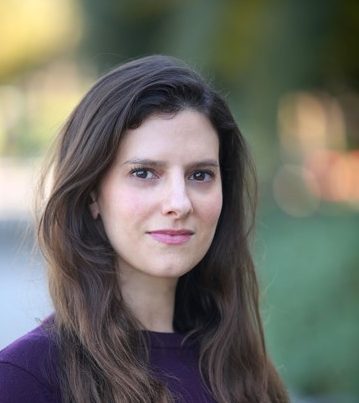Pitching Venture Capitalists can be a very daunting task. The venture capital industry is full of sharks, and it’s essential to know what you’re doing before shooting your shot. In this interview series, I will talk to leading Venture Capitlists to hear firsthand how they want to be pitched.
In this interview, I had the pleasure to talk to Adi Levanon, a leading Investor and Principal at Flint Capital.
About Adi:
Adi is an American-Israeli hybrid who has lived in the Silicon Valley, NYC, and Israel. She has been actively involved in global startup and venture capital ecosystems for over a decade, with a successful portfolio of early-stage investments (Alloy, MoneyLion, Unit, Sensi.ai, Cynomi, and more) along with expertise in legal, product, and team management at global $billion companies (Payoneer (Nasdaq: PAYO) and Conduit (Nasdaq: PERI)). Adi is also a contributor on Techcrunch, Calcalist, Geektime, and founded Israel’s WomeninVC pitches – the platform for Israeli female founders from Israel, the US, and Europe to pitch their startup before female investors at local venture capital funds.
Q: How do you prefer to be contacted by an entrepreneur? Via email? LinkedIn? or only through intros?
It honestly really doesn’t matter to me how I meet a founder. I’ve met fantastic teams via a LinkedIn intro, a pitch presentation, and also at an event. Reaching out via Linkedin or just sharing your Linkedin profile via email is helpful, as it gives context, background, and who we are both connected to. Entrepreneurs can contact me here – al@flintcap.com.
Q: What is the first thing you notice about an entrepreneur?
Not sure there is one thing that stands out at first; it’s a mix of things I pay attention to, but what always gets intrigues me when meeting an entrepreneur is when on the one hand, they really know their target market – the ins and out, the challenges they face, what isn’t working, who the competition is, etc.’. As if there isn’t anything I could throw their way that they haven’t looked into (of course all within the lines of them still being an early-stage startup) – and on the other hand, the humility to also listen to feedback and not feel the need to hide what they do not yet know/ are not yet sure of and can still mention how they plan on closing the gap(s).
Q: How long does it usually take you to make a decision regarding an investment?
It really depends on the pace of the round and how much we have a read into the industry the startup is targeting, but in most cases, we can reach a decision to invest within two weeks.
Q: What do you wish entrepreneurs knew before meeting with you?
That if they come prepared with an ask, being clear on how I can help them based on my network and areas of expertise, I’ll know that they have done their research, and I’ll take them much more seriously. When founders ask me for intros to other funds without having a target list, I feel like they don’t really have a thought out execution plan for themselves. Also would want them to know that I’m very honest but also nice.
Q: What tech verticals are you most interested in?
I’ve been investing in early-stage fintech startups in both the US and Israel since 2015 and am continuously tracking the industry for more gems. Beyond that, I have experience as an operator and investor in the world of enterprise SaaS, I am a big fan of productivity/ efficiency tools, and I get excited around anything AI-based (which today means a very wide net).
Q: What has been the most memorable pitch you remember?
There were a few over the years that I recall well, but probably the first call and meeting with Assaf Wand from Hippo stands out the most. The fact that some investors in NYC didn’t really get his Israeli vibes when he was fundraising his Seed was, I think, what allowed me to continue getting excited about the opportunity. He had such a big vision and conviction; it was hard not to get excited about what Hippo was going to become (sadly, this is in my “ones that got away” portfolio…).
Q: How do you handle the stress of being an investor?
The major stress nowadays is in getting into a deal as quickly as possible, considering the hype of the market. I don’t take FOMO into consideration and really follow my own gut and conviction, which has proven me well over the years. I think that what helps me deal with the stress of all these fast-moving deals is the fact that I stay humane along the process – honest, candid, tell it like it is. Founders today know that there is much more needed beyond a shiny brand name fund, especially in the earliest rounds. That, I think, is what has helped me get on some fantastic cap tables over the years, and even if I lost the Seed, I was able to participate later on because of the relationship that was built.
Q: What books or movies do you recommend to entrepreneurs?
Do entrepreneurs have time to read? 🙂 Jokes aside, I would read the book “Grit. Give and Take”, “The Hard thing about Hard things”. And even if you are not necessarily a spiritual person, I’d recommend listening to a fantastic podcast called “Spiritually Hungry” – there is so much content that keeps you grounded when dealing with the startup rollercoaster, and I am a huge fan.
About Flint Capital:
Flint Capital invests in the greatest companies from the US, Israel, and Europe and helps them by being a bridge to the US market. The portfolio consists of the following market segments: Enterprise Software, Financial Technologies, Health Technologies, Artificial Intelligence, Automation, Consumer Mobile Applications, and Marketplaces.
Thanks for reading the article. Feel free to check out my website, and contact me Via email, LinkedIn, or Twitter.




















